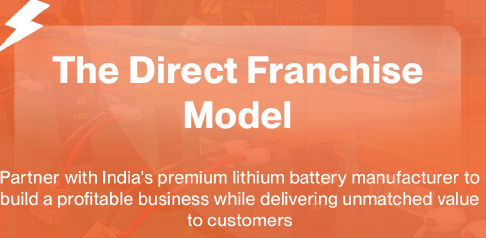Setup Lithium-ion Battery Assembly Line
To establish a Lithium-ion battery assembly line, both technical and commercial knowledge are crucial. This includes understanding cell characteristics, battery pack design, assembly processes, and business aspects like costing, market demand, and regulatory requirements. A comprehensive approach involves market research, business plan development, securing funding, and navigating the regulatory landscape.

Course offered by "Institute of Solar Technology" & "Academy of EV Technology"
Course offered by "Institute of Solar Technology" & "Academy of EV Technology"
Setting up a lithium-ion battery assembly line involves several key steps, from initial planning and sourcing to final quality control and packaging. It requires a combination of strategic planning, technical expertise, and adherence to safety standards.
Learn how to establish a Lithium-ion battery manufacturing facility. Explore the process, requirements and opportunities for setting up your production unit.
Technical Aspects:
-
Lithium-ion battery assembly Technical knowledge:Understanding cell chemistry, voltage, capacity, and internal resistance is vital. Knowledge of cathode, anode, separator, and electrolyte materials and their roles in energy storage.Understanding different cell chemistries (e.g., LiCoO2, NMC, LFP) and their impact on performance, safety, and cost.Knowledge of cylindrical, pouch, and prismatic cell designs and their respective advantages and disadvantages.Understanding how to manage heat generated during charging and discharging to ensure safety and performance.Understanding how to connect cells in series and parallel to achieve the desired voltage and capacity.Proficiency in various welding methods like laser welding for connecting busbars and tabs.
-
Testing and Quality Control:
- Ensuring the quality of raw materials like lithium, cobalt, nickel, graphite, and manganese.
- Implementing rigorous testing procedures for cell capacity, charge/discharge behavior, and safety is essential.
- Implementing quality control measures at each stage of the manufacturing process to identify defects.
- Performing various tests like IR testing, charge/discharge testing, and performance validation to ensure battery pack quality.
-
Module and Pack Assembly:Knowledge of series and parallel cell connections, thermal management systems, and Battery Management Systems (BMS) is required.
-
Automation and Equipment:Selecting appropriate machinery for cell sorting, module assembly, and pack testing is crucial. Knowledge of specialized equipment for tasks like cell stacking, welding, and testing.
Commercial Aspects:
-
Market Analysis:Identifying target markets (e.g., electric vehicles, energy storage) and understanding their specific needs. Market research is the first step in battery production line. Based on the research, you need to understand the target market’s demand for lithium battery and the market trends for different application battery like EV 2W, 3W, EV car, Solar energy, medical equipment battery, home ups battery in the next few years.
-
Business Planning:Developing a comprehensive business plan, including financial projections, cost analysis, and sales strategies. This blueprint outlines your value proposition, target market, competitive analysis, marketing strategies, and financial projections, including startup costs, revenue streams, and profit margins.
-
Costing and Pricing:Accurately estimating the cost of materials, labor, and overhead to determine competitive pricing. Understanding the cost components of lithium-ion batteries and developing competitive pricing strategies.
- Working Capital Management: Managing finances and cash flow for efficient operations.
- Investment Planning: Securing funding for equipment, infrastructure, and operations.
-
Funding and Investment:Securing the necessary funding through loans, grants, or equity investment. The Startup India Seed Fund Scheme (SISFS) can be a valuable resource for startups looking to establish a lithium-ion battery assembly line in India. Easy availability of capital is essential for entrepreneurs at the early stages of growth of an enterprise. Once a startup has established a proof of concept, Venture Capital and Angel Investors can provide further funding. Banks typically provide loans to startups with assets, after initial funding rounds.
-
Regulatory Compliance:Adhering to safety standards, environmental regulations, and other relevant laws.
- Staff Training: Train personnel on assembly procedures, quality control, and safety protocols.
Government Initiatives:
-
Targeting 50 GWh Capacity:The National Mission on Transformative Mobility and Battery Storage (NMTMBS) aims to establish 50 GWh of LiB production capacity by 2025.
-
Focus on Indigenization:The Indian government is actively focusing on indigenization of lithium-ion battery manufacturing to reduce reliance on imports and strengthen the domestic supply chain. This includes policy support, financial incentives, building domestic manufacturing capacity and investments in research and development.
-
National Manufacturing Mission:The National Manufacturing Mission for Lithium-ion batteries in India is a government initiative aimed at boosting domestic production of lithium-ion batteries and related components for electric vehicles (EVs) and energy storage solutions. It focuses on building a robust domestic ecosystem for clean technologies, reducing dependence on imports, and establishing India as a leader in the EV supply chain.
-
PLI Scheme:The Production Linked Incentive (PLI) scheme for advanced chemistry cell (ACC) battery storage, with a budgetary outlay of Rs 18,100 crore, provides incentives to manufacturers to set up ACC battery plants in India, aiming for a capacity of 50 GWh by 2025-26.
-
Tax and Duty Benefits:Reduced GST rates on EVs and batteries, along with other incentives, to encourage domestic production and adoption.
-
Focus on Recycling:Initiatives are in place to promote lithium-ion battery recycling to secure the supply chain and reduce reliance on virgin materials
-
Exploration of Lithium Reserves:Efforts are underway to identify and extract lithium reserves within India, with the first lithium block recently auctioned in Chhattisgarh.
















 Arattai - Chat
Arattai - Chat